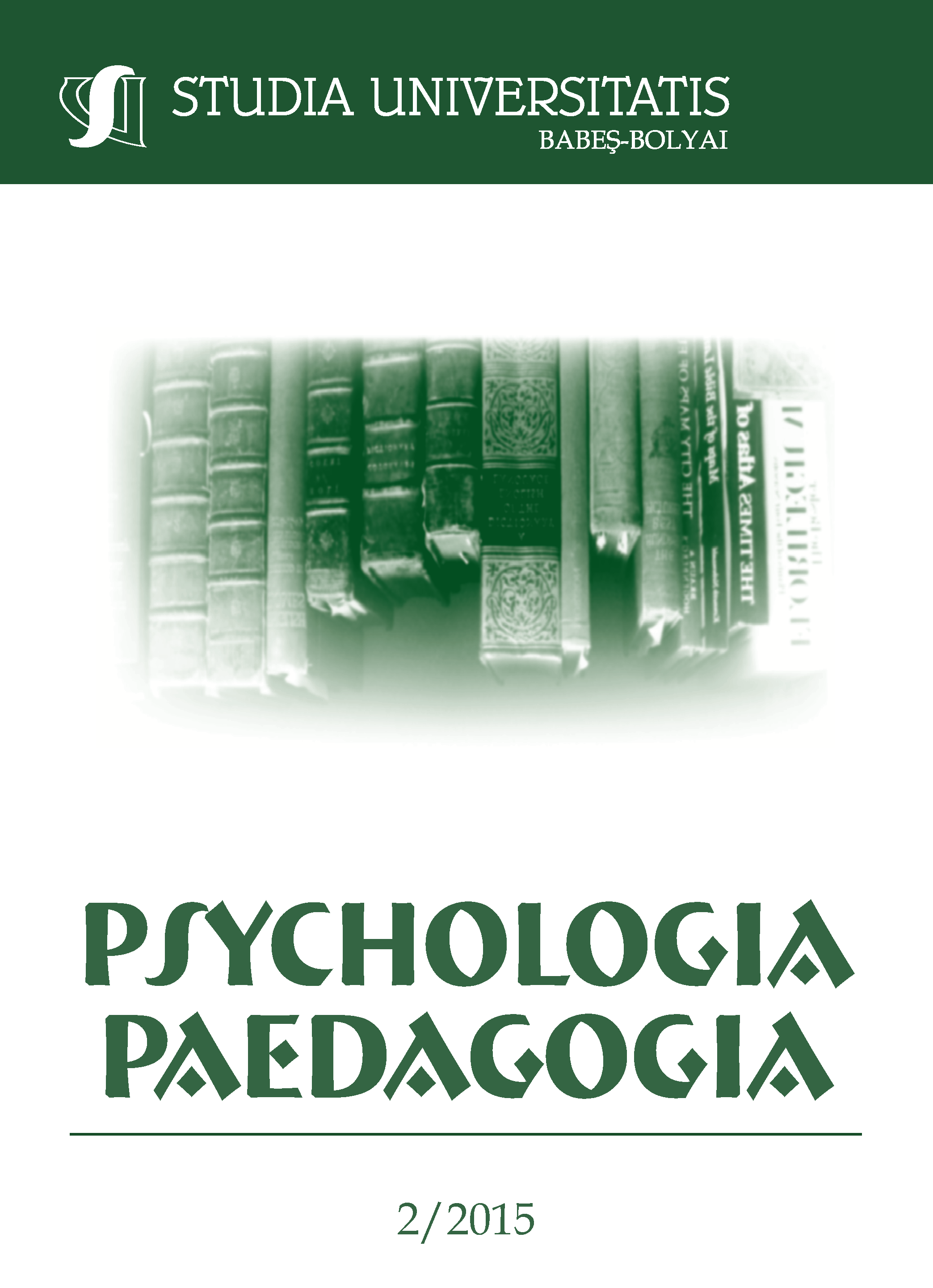EMBODIED LEARNING: CONNECTING PSYCHOLOGY, EDUCATION, AND THE WORLD
Keywords:
Embodied cognition, embodied learning, grounded teaching, imaginative education.Abstract
This opinion article is aimed to bridge new approaches in psychology with the efforts to change schools that are widely advocated in educational sciences. To reach this aim we review the embodied cognition approach and the problems that schools face today, and then we argue for the role that embodied learning might play in the process of changing education as it is pursued today. We conclude with ideas on the importance of putting the learner back in the world when he/she learns in order to be able to better adapt to the world.
ZUSAMMENFASSUNG. Dieser Artikel ist eine Stellungnahme, die darauf abzielt, neue Ansätze in der Psychologie mit den Bemühungen den Schulen zu verändern, die weit verbreitet in Erziehungswissenschaften vertreten sind, zu überbrücken. Um dieses Ziel zu erreichen, überprüften wir die verkörperte Erkenntnisansatz und die Probleme, mit denen Schulen heute konfrontiert sind und dann, behaupten wir auf die Rolle, die verkörpertes Lernen in den Prozess der Veränderung der Bildung, so wie sie heute betrachtet wird, spielen kann. Der Abschluß besteht aus Ideen über die Bedeutung die Lernenden zurück in der Welt zu stellen, damit sie in der Lage sind, sich besser an die Welt anzupassen.
Schlüsselwörter: verkörperte Kognition, verkörpertes Lernen, gegründeter Unterricht, phantasievolle Bildung
References
Barsalou, L.W. (2003). Situated simulation in the human conceptual system, Language and Cognitive Processes, 18, 513–562.
Barsalou, L.W. (2008). Cognitive and Neural Contributions to Understanding the Conceptual System. Current Directions in Psychological Science, 17, 91–95.
Barsalou, L. W. (2010). Grounded Cognition: Past, Present, and Future. Topics in Cognitive Science, 2, 716-724.
Byrnes, J. P. (2001). Cognitive development and learning in instructional contexts. Allyn & Bacon.
Clark, A. (2011). Supersizing the Mind: Embodiment, Action, and Cognitive Extension. Oxford University Press, New York.
Cucoş, C. (2014). Pedagogie. Ediția aIII-a revăzută și adăugită. Iași: Polirom.
Egan, K. (1997). The Educated Mind. How cognitive Tools Shape Our Understanding. Chicago: The University of Chicago Press.
Egan, K. & Popenici, Ș. (2007). Educația elevilor hiperactivi și cu deficit de atenție. București: Didactica Press.
Egan, K. (2007). Predarea ca o poveste. O abordare alternativă a predării și a curriculum-ului în școala primară. București: Didactica Press.
Engeström, Y. (2014). Învățarea prin expansiune: spre o reconceptualizare a învățării bazate pe teoria activității. in: K. Illeris (ed.), Teorii contemporane ale învățării. Autori de referință. București: Editura Trei, p.101-135
Gallese†, V. & Lakoff, G. (2005). The brain's concepts: The role of the sensory-motor system in conceptual knowledge. Cognitive neuropsychology, 22(3-4), 455-479.
Gardner, H. (2014). Abordări multiple ale cunoașterii. in: K. Illeris (ed.), Teorii contemporane ale învățării. Autori de referință. București: Editura Trei, p. 192-209
Glenberg, A. M. (2010). Embodiment as a unifying perspective for psychology. Wiley Interdisciplinary Reviews: Cognitive Science, 1, 586-596.
Glenberg, A. M., Witt, J. K. & Metcalfe, J. (2013). From the revolution to embodiment: 25 years of cognitive psychology. Perspectives on Psychological Science, 8(5), 573-585.
Glenberg, A. M., Sato, M., Cattaneo, L., Riggio, L., Palumbo, D. & Buccino, G. (2008). Processing abstract language modulates motor system activity. The Quarterly Journal of Experimental Psychology, 61(6), 905-919.
Hattie, J. (2014). Învățarea vizibilă. Ghid pentru profesori. București: Editura Trei.
Hommel, B. (2015). The theory of event coding (TEC) as embodied-cognition framework. Front. Psychol. 6:1318. doi: 10.3389/fpsyg.2015.01318
Ionescu, T. (2011). Abordarea "embodied cognition" si studiul dezvoltării cognitive. Revista de Psihologie, 57, 326-339.
Ionescu, T. (2014). Copiii altfel: Trasee specifice de dezvoltare cognitivă. O analiză critică. Presa Universitară Clujeană.
Ionescu, T. & Vasc, D. (2014). Embodied cognition: challenges for psychology and education. Procedia - Social and Behavioral Sciences, 128, 275 – 280.
Ionescu, T. & Ilie, A. (submitted). Language learning in preschool children – an embodied learning account. Early Child Development And Care (Special Issue: Research on Early Child Development in Romania).
James, K. H. (2010). Sensori-motor experience leads to changes in visual processing in the developing brain. Developmental science, 13(2), 279-288.
Johnson M (2015). Embodied understanding. Front. Psychol. 6:875. doi: 10.3389/fpsyg.2015.00875
Landy, D. & Goldstone, R. L. (2007). How abstract is symbolic thought?. Journal of Experimental Psychology: Learning, Memory, and Cognition, 33(4), 720-733.
Marzano, R. (2015). Arta și știința predării. Un cadru cuprinzător pentru o instruire eficientă. București: Editura Trei.
Morse, A. F., Benitez, V. L., Belpaeme, T., Cangelosi, A. & Smith, L. B. (2015). Posture Affects How Robots and Infants Map Words to Objects. PloS one, 10(3), e0116012.
Needham, A. & Libertus, K. (2011). Embodiment in early development. Wiley Interdisciplinary Reviews: Cognitive Science, 2(1), 117-123.
Needham, A., Barrett, T. & Peterman, K. (2002). A pick-me-up for infants’ exploratory skills: Early simulated experiences reaching for objects using ‘sticky mittens’ enhances young infants’ object exploration skills. Infant Behavior and Development, 25(3), 279-295.
Palincsar, A. S. (2005). Social constructivist perspectives on teaching and learning. An introduction to Vygotsky, 345-375.
Paloș, R. (2012). Teorii ale învățării și implicațiile lor educaționale. Ed. a II-a. Timișoara: Ed. Universității de Vest.
Poole, D. A., Nunez, N. & Warren, A. (2007). The story of human development. Pearson/ Prentice Hall.
Robinson, K. (2011). O lume ieșită din minți. Revoluția creativă a educației. București: Publica.
Robinson, K. & Aronica, L. (2015). Școli creative. Revoluția de la bază a învățământului. București: Publica.
Schneider, W. (2008). The development of metacognitive knowledge in children and adolescents: Major trends and implications for education. Mind, Brain, and Education, 2(3), 114-121.
Schwartz, D. L. & Goldstone, R. (2015). Learning as Coordination. Handbook of Educational Psychology, 61-75.
Skinner, B. F. (2005). Science and human behavior. Internet Edition, The B.F. Skinner Foundation (Printed edition: 1953, Simon and Schuster).
Smith, L. B. (2013). It’s all connected: Pathways in visual object recognition and early noun learning. American Psychologist, 68(8), 618-629.
Stolz, S. A. (2015). Embodied learning. Educational Philosophy and Theory, 47(5), 474-487.
Downloads
Published
How to Cite
Issue
Section
License
Copyright (c) 2015 Studia Universitatis Babeș-Bolyai Psychologia-Paedagogia

This work is licensed under a Creative Commons Attribution-NonCommercial-NoDerivatives 4.0 International License.





